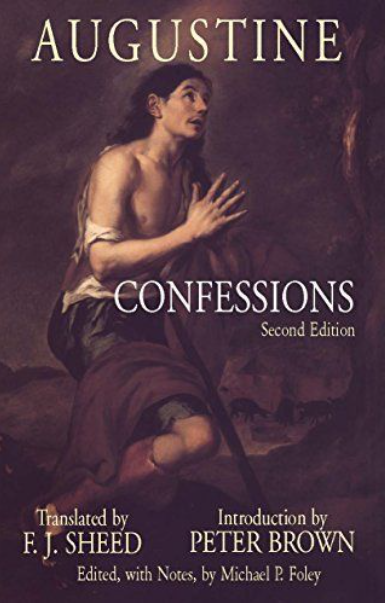The recent feast day of St Augustine and the video on conformity sent me reflecting upon the thought of theft, stealing peaches.
But I did not realize this, and rushed on headlong with such blindness that, among my friends, I was ashamed to be less shameless than they, when I heard them boasting of their disgraceful exploits — yes, and glorying all the more the worse their baseness was. What is worse, I took pleasure in such exploits, not for the pleasure’s sake only but mostly for praise. What is worthy of vituperation except vice itself? Yet I made myself out worse than I was, in order that I might not go lacking for praise. And when in anything I had not sinned as the worst ones in the group, I would still say that I had done what I had not done, in order not to appear contemptible because I was more innocent than they; and not to drop in their esteem because I was more chaste.
Behold with what companions I walked the streets of Babylon! I rolled in its mire and lolled about on it, as if on a bed of spices and precious ointments. And, drawing me more closely to the very center of that city, my invisible enemy trod me down and seduced me, for I was easy to seduce. My mother had already fled out of the midst of Babylon and was progressing, albeit slowly, toward its outskirts. For in counseling me to chastity, she did not bear in mind what her husband had told her about me. And although she knew that my passions were destructive even then and dangerous for the future, she did not think they should be restrained by the bonds of conjugal affection — if, indeed, they could not be cut away to the quick. She took no heed of this, for she was afraid lest a wife should prove a hindrance and a burden to my hopes. These were not her hopes of the world to come, which my mother had in thee, but the hope of learning, which both my parents were too anxious that I should acquire — my father, because he had little or no thought of thee, and only vain thoughts for me; my mother, because she thought that the usual course of study would not only be no hindrance but actually a furtherance toward my eventual return to thee. This much I conjecture, recalling as well as I can the temperaments of my parents. Meantime, the reins of discipline were slackened on me, so that without the restraint of due severity, I might play at whatsoever I fancied, even to the point of dissoluteness. And in all this there was that mist which shut out from my sight the brightness of thy truth, O my God; and my iniquity bulged out, as it were, with fatness!
Theft is punished by thy law, O Lord, and by the law written in men’s hearts, which not even ingrained wickedness can erase. For what thief will tolerate another thief stealing from him? Even a rich thief will not tolerate a poor thief who is driven to theft by want. Yet I had a desire to commit robbery, and did so, compelled to it by neither hunger nor poverty, but through a contempt for well-doing and a strong impulse to iniquity. For I pilfered something which I already had in sufficient measure, and of much better quality. I did not desire to enjoy what I stole, but only the theft and the sin itself.
There was a pear tree close to our own vineyard, heavily laden with fruit, which was not tempting either for its color or for its flavor. Late one night — having prolonged our games in the streets until then, as our bad habit was — a group of young scoundrels, and I among them, went to shake and rob this tree. We carried off a huge load of pears, not to eat ourselves, but to dump out to the hogs, after barely tasting some of them ourselves. Doing this pleased us all the more because it was forbidden. Such was my heart, O God, such was my heart — which thou didst pity even in that bottomless pit. Behold, now let my heart confess to thee what it was seeking there, when I was being gratuitously wanton, having no inducement to evil but the evil itself. It was foul, and I loved it. I loved my own undoing. I loved my error — not that for which I erred but the error itself. A depraved soul, falling away from security in thee to destruction in itself, seeking nothing from the shameful deed but shame itself.
Now there is a comeliness in all beautiful bodies, and in gold and silver and all things. The sense of touch has its own power to please and the other senses find their proper objects in physical sensation. Worldly honor also has its own glory, and so do the powers to command and to overcome: and from these there springs up the desire for revenge. Yet, in seeking these pleasures, we must not depart from thee, O Lord, nor deviate from thy law. The life which we live here has its own peculiar attractiveness because it has a certain measure of comeliness of its own and a harmony with all these inferior values. The bond of human friendship has a sweetness of its own, binding many souls together as one. Yet because of these values, sin is committed, because we have an inordinate preference for these goods of a lower order and neglect the better and the higher good — neglecting thee, O our Lord God, and thy truth and thy law. For these inferior values have their delights, but not at all equal to my God, who hath made them all…






Recent Comments